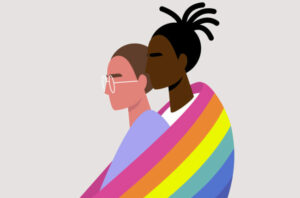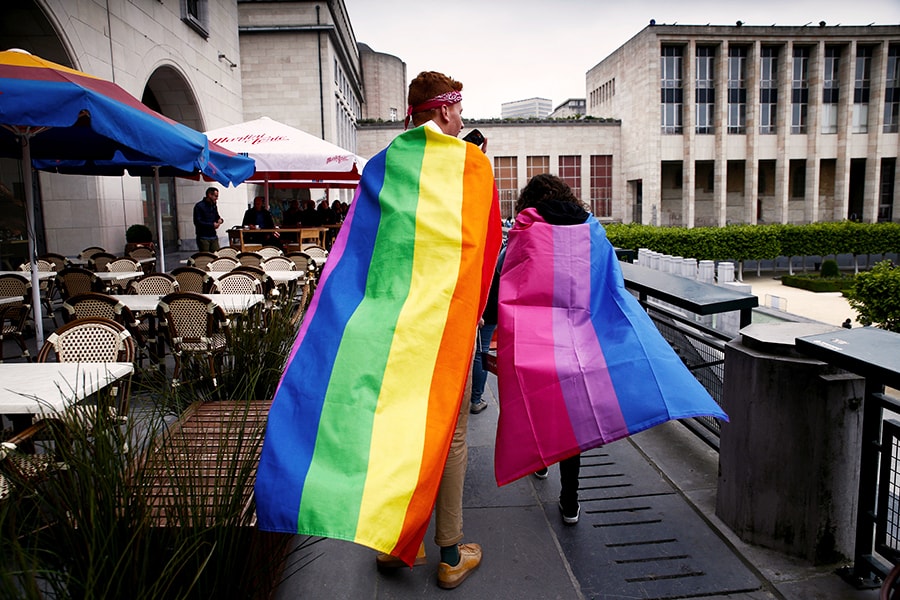In the realm of human sexuality, there exists a diverse spectrum of orientations, each characterized by unique attractions, desires, and self-identifications. While many individuals are familiar with terms like heterosexual, homosexual, and bisexual, there’s another aspect of sexuality that often goes unnoticed or misunderstood: bicuriousity. This article aims to shed light on the concept of curiosity, exploring its meaning, experiences, and the challenges faced by individuals who identify as bicurious.
Contents
Understanding Sexual Orientation

Sexual orientation refers to a person’s pattern of romantic, emotional, and sexual attraction to others. It is an inherent aspect of an individual’s identity and typically falls into one of the following categories:
- Heterosexuality: This refers to the attraction to individuals of the opposite sex. Heterosexual individuals are romantically and sexually attracted to people of a different gender.
- Homosexuality: This refers to the attraction to individuals of the same sex. Homosexual individuals are romantically and sexually attracted to people of the same gender.
- Bisexuality: Bisexual individuals are attracted to people of both their gender and other genders. They can experience romantic and sexual attraction to individuals of different genders.
- Pansexuality: Pansexual individuals are attracted to people regardless of their gender or gender identity. Their attraction is based on emotional and personal connections, rather than specific gender characteristics.
- Asexuality: Asexual individuals do not experience sexual attraction to any gender. However, they can still experience romantic or emotional connections with others.
- Other identities: There are numerous other sexual orientations that people may identify with, such as demisexuality (feeling a sexual attraction only after forming a strong emotional bond), grey sexuality (experiencing sexual attraction rarely or under specific circumstances), and more. It’s essential to recognize and respect the various ways individuals define their own identities.
What Does It Mean to Be Bicurious?
Being bicurious refers to a state of curiosity or openness about exploring one’s attraction to individuals of the same sex or gender, despite identifying as heterosexual or with another sexual orientation. Bicurious individuals are interested in understanding or experiencing same-sex attractions or relationships but may not have fully come to terms with their feelings or have not yet acted upon them.
Bicurious feelings are common and entirely normal for many people as they navigate their sexual orientation and discover their attractions. It’s essential to remember that sexual orientation exists on a spectrum, and individuals may have a range of experiences and feelings.
Common Misconceptions and Stereotypes
Here are some common misconceptions and stereotypes related to sexual orientation and gender identity:
- Homosexuality is a choice: One of the most harmful misconceptions is the belief that sexual orientation is a voluntary decision. Sexual orientation is not a choice but an inherent part of a person’s identity.
- All bisexual people are promiscuous: Bisexual individuals are often stereotyped as being promiscuous or unable to commit to a monogamous relationship. In reality, bisexual people have the capacity for committed and loving relationships, just like anyone else.
- Being transgender is a mental disorder: Transgender individuals have historically been pathologized and classified as having a mental disorder. However, the World Health Organization and other reputable medical organizations recognize that being transgender is not a mental illness.
- Transgender people are just “going through a phase”: Some people mistakenly believe that being transgender is temporary and that individuals will eventually revert to identifying with their assigned sex at birth. This undermines the validity of transgender identities and experiences.
- All gay men are effeminate, and all lesbians are masculine: These stereotypes oversimplify the diversity within the LGBTQ+ community. Sexual orientation does not dictate gender expression.
Signs and Indications of Bicurious Feelings

However, some common signs and indications of bicurious feelings may include:
- Curiosity about same-sex attraction: Bicurious individuals may find themselves curious or intrigued by the idea of being attracted to people of the same sex. They might wonder what it would be like to have a romantic or sexual relationship with someone of the same gender.
- Questioning one’s sexual orientation: Feeling uncertain about one’s sexual orientation is a common sign of bicurious feelings. Individuals may question whether they are exclusively heterosexual or if they might have some level of same-sex attraction.
- Attraction to individuals of the same sex: Bicurious individuals may notice that they experience occasional or persistent attraction to people of the same gender. This attraction could be emotional, romantic, or sexual.
- Exploration in thoughts or fantasies: Bicurious feelings might be reflected in thoughts, daydreams, or fantasies about being with someone of the same sex.
- Interest in LGBTQ+ media and topics: Bicurious individuals might show increased interest in LGBTQ+ movies, TV shows, literature, or other media that explore same-sex relationships or LGBTQ+ themes.
- Experimentation or openness to new experiences: Bicurious individuals may be open to exploring their feelings through discussions with others, engaging in LGBTQ+ events, or considering the possibility of same-sex relationships.
- Conflicting emotions or discomfort: Bicurious feelings can sometimes create inner conflict, especially if societal norms or personal beliefs contradict those feelings.
Overcoming Internal and External Obstacles
Overcoming internal and external obstacles related to sexual orientation, gender identity, and self-acceptance can be a challenging but empowering journey. Here are some strategies to help navigate these obstacles:
1. Self-Exploration and Education:
- Take time to understand and explore your feelings, thoughts, and attractions. Read books, articles, and resources related to sexual orientation and gender identity to gain more knowledge about diverse experiences.
- Attend workshops or join support groups that focus on LGBTQ+ topics, as connecting with others who have similar experiences can be valuable.
2. Seek Support:
- Find supportive friends, family members, or allies who can listen without judgment and provide a safe space to talk about your feelings.
- Consider seeking professional support from therapists or counselors experienced in LGBTQ+ issues to help navigate the challenges you may face.
3. Challenge Internalized Homophobia/Biphobia/Transphobia:
- Recognize and confront any negative beliefs or internalized stigma you may have about LGBTQ+ identities. Replace these beliefs with positive and affirming messages about yourself.
- Practice self-compassion and remind yourself that it’s okay to be who you are.
4. Set Boundaries:
- Establish boundaries with individuals who are not accepting or supportive of your identity. Surround yourself with people who respect and validate your feelings.
5. Engage in Self-Care:
- Focus on self-care activities that promote emotional well-being, such as meditation, mindfulness, exercise, hobbies, or creative outlets.
6. Be Patient with Yourself:
- Accept that the process of understanding and accepting your sexual orientation or gender identity may take time. Be patient and gentle with yourself throughout the journey.
7. Advocate for Yourself:
- If you feel safe and comfortable doing so, advocate for your rights and needs. This may include speaking up in personal or professional settings or seeking resources and services that cater to LGBTQ+ individuals.
8. Connect with LGBTQ+ Communities:
- Engage with LGBTQ+ communities both online and offline. Building connections with others who share similar experiences can provide a sense of belonging and support.
9. Educate Others:
- If you feel comfortable, share your experiences and knowledge about LGBTQ+ issues with friends, family, or colleagues to promote understanding and acceptance.
10. Legal and Social Support:
- Familiarize yourself with laws and regulations that protect LGBTQ+ rights in your country or region. Seek legal support if you encounter discrimination or harassment.
- Utilize LGBTQ+ organizations and support services that can provide guidance and assistance in times of need.
Bicuriousity and the LGBTQ+ Community

Bicuriousity is a term used to describe someone curious or open to exploring same-sex attractions or relationships, despite identifying as heterosexual or with another sexual orientation. It is important to recognize that bicurious individuals may or may not eventually identify as LGBTQ+ (lesbian, gay, bisexual, transgender, queer, and other sexual and gender minority identities).
The LGBTQ+ community is a diverse and inclusive community that encompasses individuals with various sexual orientations, gender identities, and gender expressions. Bicurious individuals may find support, understanding, and acceptance within the LGBTQ+ community, as it strives to create a safe and affirming space for all individuals, regardless of their sexual orientation or gender identity.
Bicurious individuals might engage with the LGBTQ+ community in various ways:
- Exploration and Support: Bicurious individuals who are questioning their sexual orientation may turn to the LGBTQ+ community. This is for support, resources, and understanding. Interacting with others who have similar experiences can be helpful during the process of self-discovery.
- Social Engagement: Bicurious individuals may participate in LGBTQ+ events, pride celebrations, or support groups to connect with others and learn more about LGBTQ+ experiences.
- Advocacy and Allyship: Some bicurious individuals may choose to become allies of the LGBTQ+ community, advocating for LGBTQ+ rights and promoting acceptance and inclusivity for all.
- Personal Growth: Engaging with the LGBTQ+ community can be a valuable opportunity for personal growth, empathy, and understanding of diverse sexual orientations and gender identities.
Conclusion
Bicuriousity represents a valid and authentic part of human sexuality. Exploring and understanding one’s own bicurious feelings can be a transformative and empowering journey. By embracing self-discovery, seeking supportive communities, and engaging in open communication, individuals can navigate bicuriousity with confidence and find a greater understanding of their desires and attractions.
Life may sometimes be challenging for bisexuals, but Online Bisexual Counseling can help. Get experienced LGBTQ therapists at PrideMantra: Book a trial LGBTQ therapy session.


